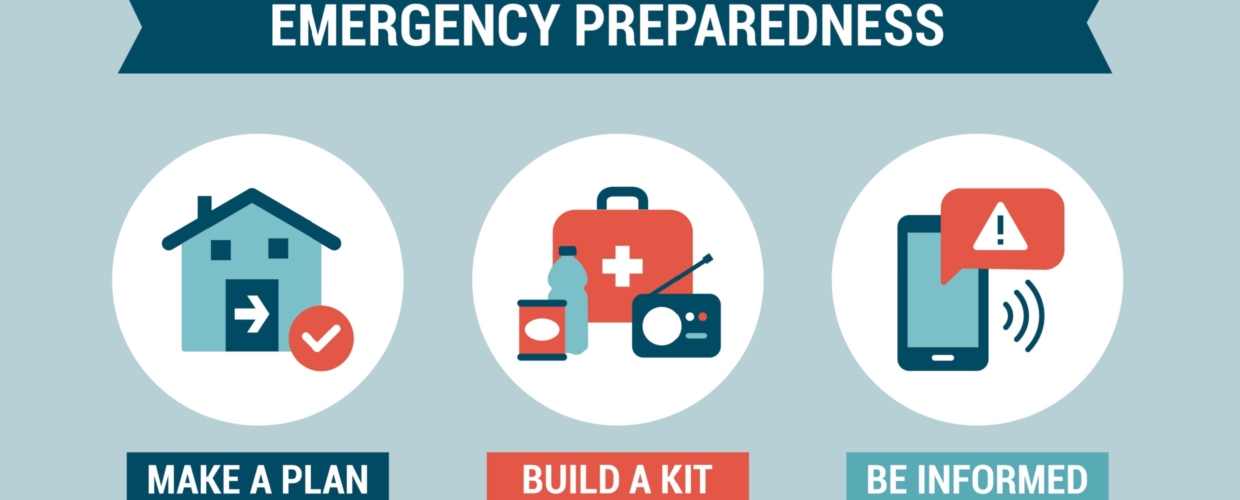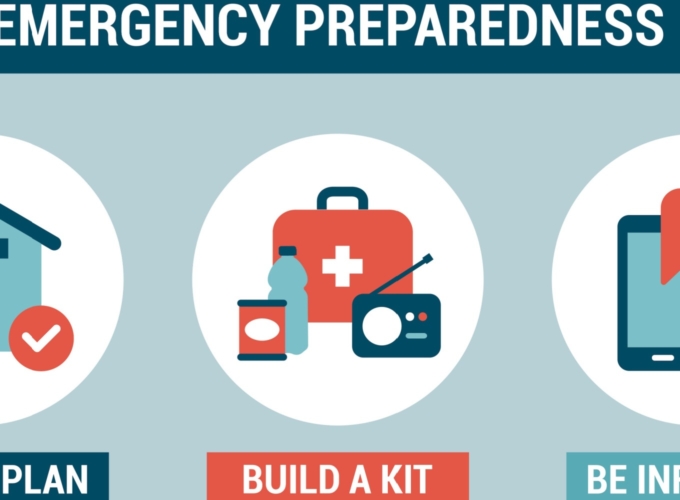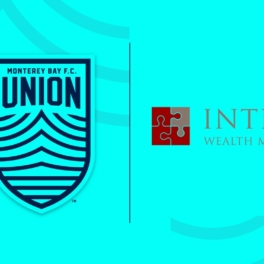

Navigating Disasters
From the many fires in years past to the torrential rains and flooding more recently, every new year in California seems to bring about a unique disaster. If you haven’t been directly affected, you likely know someone who has. When these events happen, knowing just what to do or who to contact can be challenging. We have created a (non-exhaustive) list of resources for reference.
How to Prepare:
FEMA and the Department of Homeland Security provide great tips for preparing for potential disasters:
- Make a Plan: Contains some very helpful hints about how to be prepared ahead of time for potential disaster situations.
- Build a Kit: Food and water are always essential when assembling an emergency kit, but many other items can be handy in a disaster situation as well. See this list for some great suggestions.
How to Respond:
Knowing where to start the recovery process can be difficult following a disaster. Food, water and shelter are usually top priorities before tackling other tasks. Check out your local county food bank for assistance, or look for federal support through the Disaster Supplemental Nutrition Assistance Program.
- Monterey County Food Bank | (831) 758-1523
- Santa Cruz County Food Bank | (831) 722-7110
- San Benito County Food Bank | (831) 637-0340
- San Luis Obispo County Food Bank | (805) 238-4664
Community Foundations are a great avenue to connect you with local organizations that can help provide shelter or access to other resources in your area.
- Community Foundation for Monterey County | (831) 375-9712
- Community Foundation for Santa Cruz County | (831) 662-2000
- Community Foundation for San Benito County | (831) 630-1924
- Community Foundation for San Luis Obispo County | (805) 543-2323
You can also look to Sheltering and Housing Assistance for Disaster Survivors if a national disaster is declared. FEMA (the Federal Emergency Management Agency) may pay for you to stay in a hotel for a limited period.
As you tend to physical needs, financial burdens can quickly pile up. As noted above, Community Foundations can serve as an excellent jumping-off point in looking for financial support. At the federal level, some resources are available to support those affected by disasters.
- DOL (Department of Labor) Disaster Unemployment Assistance
- SBA (Small Business Administration) Disaster Loan Assistance
- USDA (US Department of Agriculture) Disaster Assistance Programs
Additionally, your individual financial situation may provide avenues to meet your needs.
- Report damages to your insurance company. Providing detailed information in their requested format can help expedite a claims process.
- Check-in with your lenders. If you have debt and your ability to make payments is impacted, inquire about your ability to pause or modify payments.
- Call your utility provider. They may have programs to assist bill payers who experience extreme circumstances.
- Credit Cards: Rewards programs and/or insurance features for credit cards can provide assistance in times of needs.
- Retirement accounts: In times of need, retirement accounts may offer early access to help ensure bills are paid.
- Check with your tax professional: Tax filing and payment deadlines are often extended for areas impacted by disaster.
When a disaster occurs, it can be jarring. Creating a plan ahead of time and knowing where to turn for help can truly be lifesavers. Outside of obvious emergency services (911), we hope the ideas above are helpful in creating shelter and safety for those in need.
The information provided herein is for educational purposes only, and should not be construed as advice, including, but not limited to tax, legal, insurance, investment, or retirement advice. For your specific planning needs, please seek the advice of Integris Wealth Management, your tax accountant, attorney, insurance agent, or other professional as appropriate. Investing involves the risk of loss.





